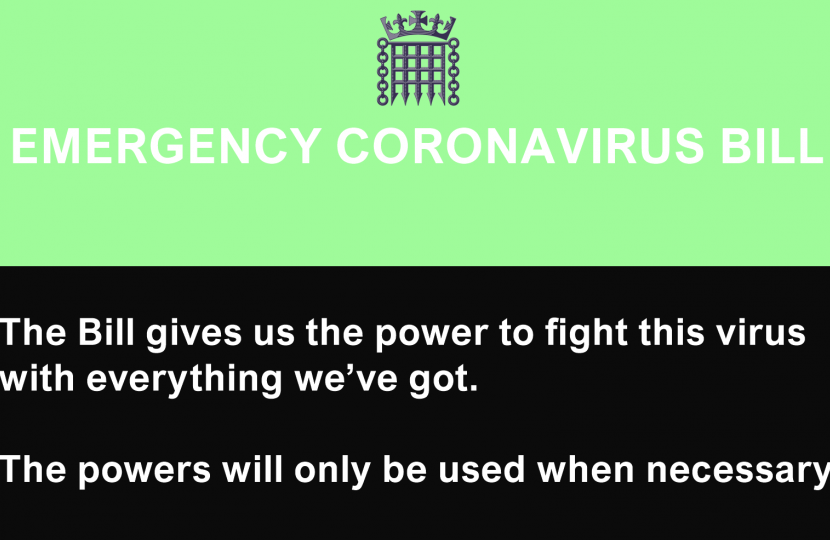
We need emergency powers in our armoury to give us the best possible chance of overcoming this unprecedented national challenge.
The Emergency Coronavirus Bill enables action across five main areas:
-
increasing the available health and social care workforce – for example, by removing barriers to allow recently retired NHS staff and social workers to return to work (and in Scotland, in addition to retired people, allowing those who are on a career break or are social worker students to become temporary social workers)
-
easing the burden on frontline staff – by reducing the number of administrative tasks they have to perform, enabling local authorities to prioritise care for people with the most pressing needs, allowing key workers to perform more tasks remotely and with less paperwork, and taking the power to suspend individual port operations
-
containing and slowing the virus – by reducing unnecessary social contacts, for example through powers over events and gatherings, and strengthening the quarantine powers of police and immigration officers
-
managing the deceased with respect and dignity – by enabling the death management system to deal with increased demand for its services
-
supporting people – by allowing them to claim Statutory Sick Pay from day one, and by supporting the food industry to maintain supplies
All of the measures are strictly temporary, proportionate to the threat we face, and will only be activated - and deactivated – led by the best possible scientific advice. And while the powers would only be used in extreme circumstances, throughout this pandemic our approach is to plan for the worst and work for the best.
More information on the provisions of the Bill can be found here.
I worked together with the Cabinet Office to secure a Government amendment to protect Jewish, Muslim and other faiths, in Wealden and across the UK, who wish to carry on with burials, instead of cremation. For more details, follow this link.
